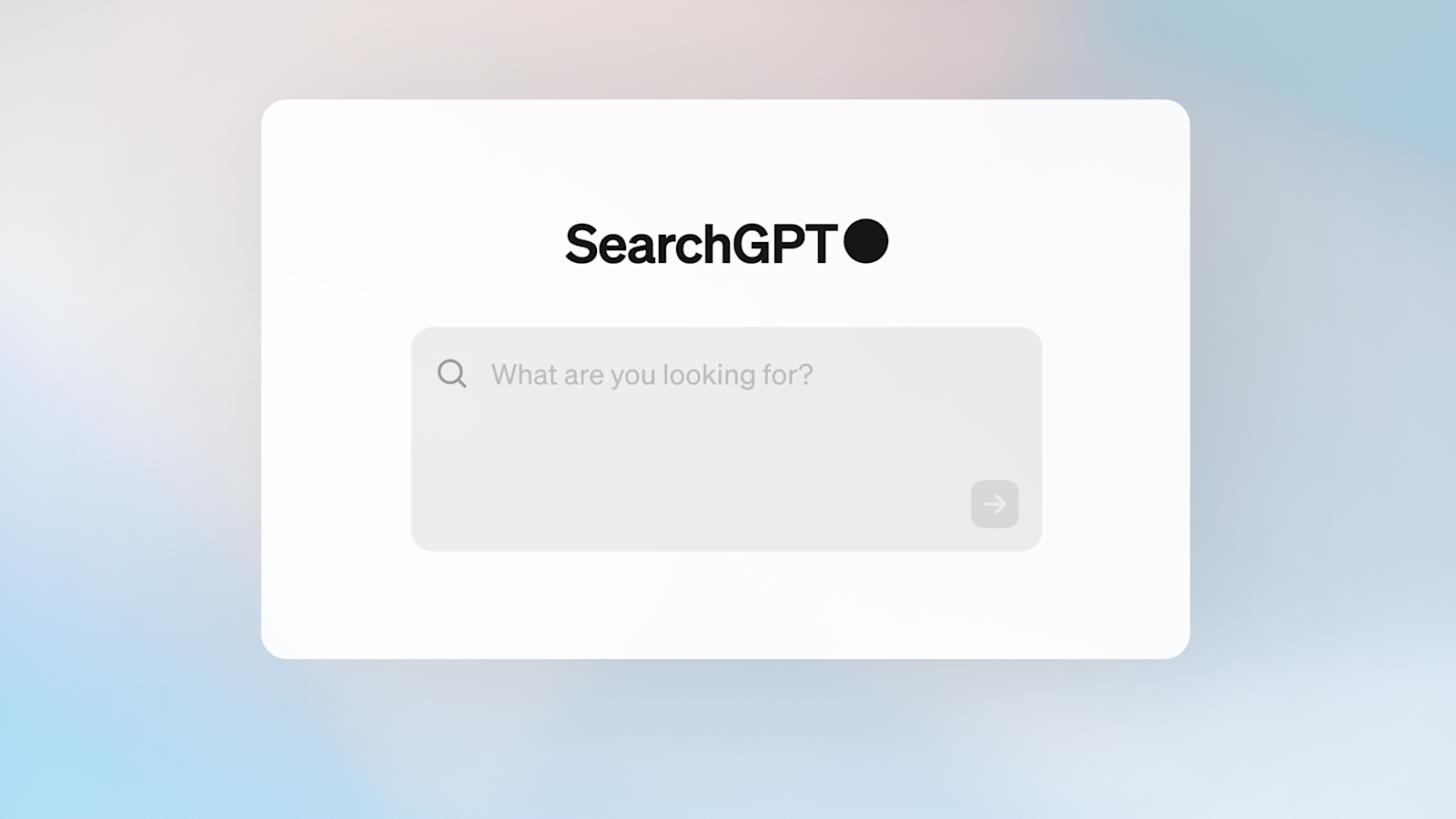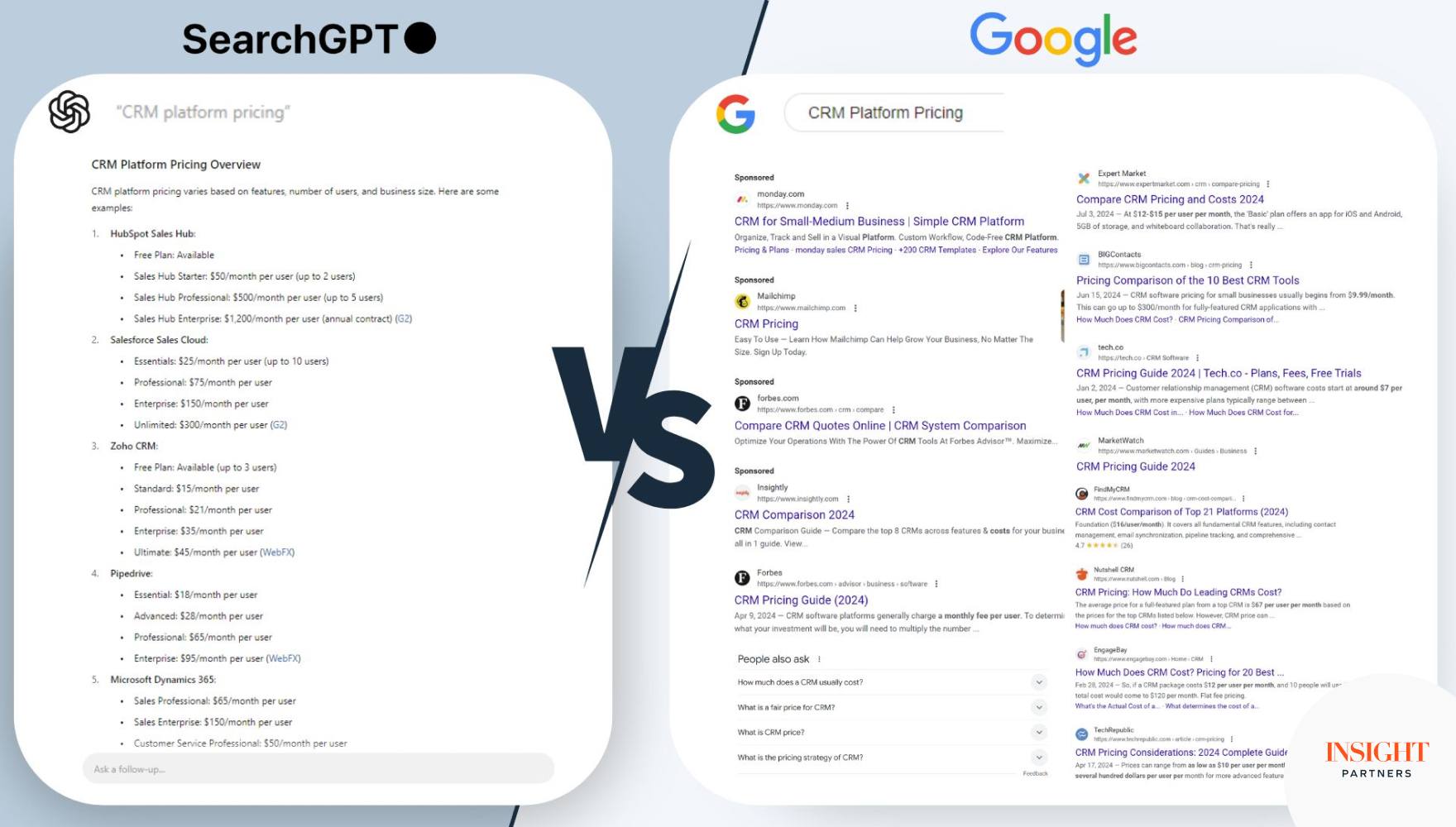When I first heard about SearchGPT, I thought to myself, “Great, another AI that’s gonna try to outsmart me.”

I mean, we’re marketers, right? We live and breathe SEO, keywords, and ranking tricks. But here comes OpenAI with this bold claim: a search engine that doesn’t just give you a pile of links but talks to you like a friend who actually knows stuff. It got me thinking—could this really change everything we know about search? Or is it just another flashy tool that’s more hype than help?
You see, I’ve spent years tweaking headlines, writing content, and obsessing over algorithms to get those clicks. Suddenly, it feels like someone threw the playbook out the window.
But before we start rewriting our entire SEO strategies, let’s take a closer look at what SearchGPT is really about, how it could flip the world of marketing upside down, and what the future might look like with an AI calling the search shots.
What is SearchGPT?
Imagine this: you type a question into a search engine, but instead of getting a list of 10 blue links with ads squeezed between them, you get a well-crafted, complete answer. No clicking, no hunting down sources—just a simple, friendly answer to your question. That’s SearchGPT in a nutshell:

It’s developed by OpenAI, the folks behind ChatGPT, who apparently thought, “Hey, why not use this AI magic to make search better?” But instead of just pointing you to websites, SearchGPT aims to be the answer. It’s like that know-it-all friend you always call for advice, but with zero judgment and 100% attention. It’s designed to understand what you’re asking, find the most relevant info, and respond like you’re having a casual chat over coffee.
How’s it different from Google?
Well, Google is like an encyclopedia. You ask something, and it hands you 50 different sources to browse through, ads and all, with some SEO wizardry sprinkled on top.
With SearchGPT, there’s none of that. It’s more like asking a librarian who already read all the books in the library and can give you a short and sweet summary without the fluff. You get one core answer instead of a sea of links. Cool, right?

But hold up—there are some things to consider. Because this AI-driven approach is based on providing direct answers, it doesn’t always give you a full picture. Imagine searching “best digital marketing strategy” and instead of 50 blogs to skim through, you get just one detailed AI-crafted answer. It’s super convenient, sure, but what if that answer is not exactly… correct? Or maybe just not the best for you?
Pros & Cons (from a marketer’s eyes)
Let’s start with the pros.
First off, the user experience is cleaner and faster:

SearchGPT wants to save you from the endless rabbit hole of link-clicking. It also provides answers based on context, not just keywords—so you ask a specific question, you get a specific response.
Now, the cons.
The risk of misinformation is real. If the AI gets it wrong, the user may never know, because there’s no quick way to double-check multiple sources.
And for us marketers, this is where things get tricky. You see, SEO today relies a lot on those multiple results. We want to be in the top 10 search results, get those clicks, and lead users to our site. But with SearchGPT? It gives one answer. So if you’re not that answer, well, good luck!
Then there’s the matter of trust. Google is familiar, like an old friend who, yes, shows you a lot of options, but at least you know what to expect. SearchGPT, on the other hand, is the new kid on the block, and while the AI might be smart, it’ll need to build trust with users over time.

And hey, how are we going to handle ads and monetization if the AI just hands out answers without showing websites? That’s a whole new challenge for us marketers to figure out.
How marketers should prepare for SearchGPT?
If SearchGPT really starts taking off, how do we, as marketers, make sure we’re not left behind? Even if it’s probably too early to make big change on your website, here are some ideas of mine:
Shift to conversational content
Instead of stuffing keywords, write like you’re speaking directly to your audience, focusing on the natural way they ask questions. Your content should be friendly, detailed, and feel like a helpful conversation to align with SearchGPT’s style.
Go deep on topics
Cover a subject in-depth to be seen as the go-to answer, not just another option. Create guides, FAQs, and detailed pieces (like the content hubs I recently published on boost.ai) that cover every angle, showing your expertise to the AI.
Optimize for voice and intent
Think about how people talk, not just how they type, as voice search is similar to conversational AI queries. Use long-tail keywords and structure content to answer direct questions quickly and clearly.
Rethink your analytics
Page views might go down if users get answers directly from SearchGPT, so focus on engagement metrics instead. Track how well your content answers user questions based on time spent, shares, and feedback.
Build a strong, recognizable brand
To be the one answer SearchGPT chooses, create a trusted brand that stands out as an authority in your niche. Invest in thought leadership, quality content, and being where your audience is to build credibility.
Future of Search
Will SearchGPT completely change how we find stuff online, or is it just another shiny tool that fades away once the hype is over? Well, that’s the million-dollar question, and to be honest, it could go either way.
Could SearchGPT replace Google?
It’s possible, but not so fast. Google’s got decades of data, a strong user base, and knows more about us than we sometimes know about ourselves. SearchGPT might give better direct answers, but replacing a search giant like Google? That’s a huge mountain to climb.
AI vs. Traditional Search—coexisting or competing?
One thing’s for sure: AI isn’t just going to pack up and disappear. The most likely scenario? SearchGPT coexists with traditional search engines, each serving different needs. Maybe we’ll use Google when we need to browse around, explore options, and read multiple sources. And use SearchGPT when we just want a straight, quick answer.
What challenges does SearchGPT face?
Trust is a big one. People like knowing where info comes from, and SearchGPT’s single-answer approach means users may question its accuracy or bias. Plus, OpenAI has to figure out how to monetize this thing if it’s gonna compete with ad-driven models like Google, so we could see a new approach to ads and sponsored answers soon.
How will users react to AI-Driven search?
Some users are going to love it—ask a question, get an answer, no fuss. But others may miss the feeling of control over picking their own sources. There’s also the concern of relying on one single AI-driven answer without getting a full view of all the perspectives, so SearchGPT will need to build a lot of trust to become the go-to search tool.
So, what’s the real future?
Honestly, we’re looking at a mixed bag. SearchGPT will push search to be faster, more direct, and more context-aware. But it’s not likely to totally replace traditional search engines anytime soon. The smart play for us marketers? Stay flexible, experiment with both traditional and AI-driven strategies, and be ready to pivot as search continues to evolve.
Let’s face it—people are loving AI, and fast. Just look at how quickly everyone’s jumped on ChatGPT; it’s already part of our daily routine, sometimes even more than Google. So, I wouldn’t bet against SearchGPT shaking things up.
Sure, Google’s still the king of search, but we’re seeing a shift in how people want their answers: fast, simple, and straight to the point. If SearchGPT keeps improving, it could be our go-to for all those quick questions we don’t want to dig through pages to answer.
Personally, I think it’s smart to get ahead of the curve—embrace the change, test the waters, and be ready to ride the AI search wave as it grows. After all, isn’t that what being a marketer’s all about? Adapting, experimenting, and always staying one step ahead?

Comments